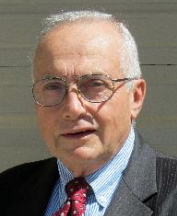Closing Field Offices is Bad Policy

[April 2015] The FCC has proposed, as a costcutting maneuver, closing many of the field offices and reduce manpower. Many broadcasters call this bad policy. Richard Rudman explains:
Robert “Bob” Gonsett, the well-known Southern California telecomm consultant, recently authored a guest editorial entitled “Closing FCC Field Offices Could Lead to RF Anarchy.”
The plan advanced by the Enforcement Bureau would reduce the number of field agents from 63 to 33 and field office director positions from 21 to five. The number of field offices would shrink from 24 to eight.
I agree with Bob 100% about the potential for RF anarchy. But there is also a direct link to the health and welfare of the Emergency Alert System (EAS) that we must not overlook. Back to Bob and what he proposes shortly.
Voluntary is a Hollow Promise
EAS at the local and state levels is voluntary when it comes to relaying tests and live code messages.
To expand on this, for any in doubt, as long as you can prove that you are receiving your EAS Plan’s monitor assignments, federal, state, and tests and live codes, and fill out your EAS log according to the requirements of Part 11, you are legal. No relays are required!
Even if you are an LP-1, you can resign from the promise to relay local and state EAS messages with no harm and no foul.
Already Losing Key Talent
June Gonzales recently retired from the San Diego FCC field office. During her tenure there, she attended many Southern California regional EAS Committee meetings and conducted many thorough but fair site inspections for regional EAS Participants.
In the FCC’s proposed reduction from 63 field agents to 33, agents, the FCC is not likely to replace people with June’s skill set, passion, and dedication. The “value added” that June brought to our region is one sorely lacking in many parts of the country, and one that will be greatly missed.
We need more people like June who understand EAS, work closely with local EAS committees, National Weather Service offices, emergency managers, and communicate to broadcast licensees that our government believes state and local emergency public warnings are important and need to be relayed – voluntarily.
June knows that warnings from EAS and all other viable systems can save lives and property with timely protective action messages – that and AMBER EAS works!
Regional Effect
While we are talking about the San Diego office, if it is closed the region will lose a valuable Border liaison resource.
Almost all regional engineers I know can cite cases where that office has used its personal contacts with the Mexican Comisión Federal de Telecomunicaciones to solve countless crossborder interference issues.
Other Border FCC field offices (and experienced staff) are likely at risk, too.
Speaking of “Interference,”, you may recall the FCC was brought into existence to deal with interference to life safety communications.
When the Cat is Gone
Getting back to Bob’s guest editorial, the message many will receive regarding the reduction of field offices and field agents will be that fewer people will be watching the spectrum from DC to light.
What will spectrum users and abusers, pirates and licensees alike, make of that?
Bob recommends alerting Management about the downside of FCC field office downsizing forthwith. Management, as well as the engineering community, needs to warn the U.S. Senate and House of Representatives in order to stop this move in its tracks.
The BWWG and I, personally, second that.
– – –
A regular contributor to The BDR, Richard Rudman is the owner of Remote Possibilities in Santa Paula, CA. He has extensive experience from small to major markets. Contact Richard at rar01@mac.com
